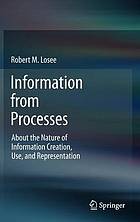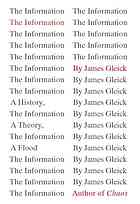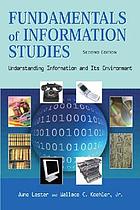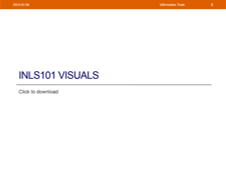What is Information?
People have been interested in information as a means of communication for a long time.
Watch this and ask yourself what your definition of information is

Then think about what Bob Losee [page v] has to say about information
One may understand information in a variety of ways. For some, information is found in facts that were previously unknown. For others, a fact must have some economic value to be considered as information. Information may be something with meaning, words put together into sentences, brush strokes on an artist's canvas, or a crescendo in music. Other people emphasize the movement through a communication channel from one location to another when describing information.
In all of these instances, the information is the set of characteristics of the output of a process, the characteristics produced from the set of possible characteristics of the output. The information produced by the process is about the process itself and about its input. This informative output may be observed and analyzed, and the output may be captured by a statement describing the information and the relationships between the information containing variables. Such an informative statement may describe the state of nature at the output of the process.
With that in your mind, read these two chapters and be ready to discuss them in class

Gleick, J. (2011).
The information: A history, a theory, a flood.
New York, NY: Pantheon Books.
-
read chapter chapter 7, Information theory. As you read it, think about:
⇒ the idea that coding is not meant to obscure, but to illuminate (p. 213)
⇒ "information is uncertainty, surprise, difficulty, and entropy" (p. 219)
⇒ the concept of a state (p. 224) -
read chapter chapter 8, The informational turn. As you read it, think about:
⇒ Is information about communication (p. 242)
⇒ or is it a hard core branch of mathematics (p. 263)
⇒ what is the connection between "the magical number seven" and "bits"? (pp. 260-261)

If you wish to, you may also browse through these
Lester, J., and W. C. Koehler. "Fundamental Concepts of Information." In Fundamentals of Information Studies, 16-25. 2nd ed. New York: Neal-Schuman, 2007.
Marchionini, Gary. "The Many Meanings of Information." In Information Concepts: From Books to Cyberspace Identities, 1-9. Synthesis Lectures on Information Concepts, Retrieval, and Services. Morgan & Claypool, 2010.
Which readings speak more to your interests?
[top]


